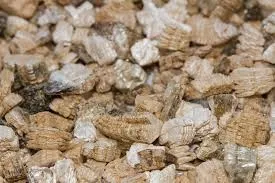Aug . 07, 2024 18:35 Back to list
Effective Insulation Solutions for Piping Systems to Enhance Energy Efficiency and Reduce Heat Loss
High-Quality Insulation Material for Pipes
In the realm of construction and HVAC (Heating, Ventilation, and Air Conditioning) systems, the significance of high-quality insulation materials for pipes cannot be overstated. Proper insulation is essential for enhancing energy efficiency, preventing heat loss, and ensuring the longevity of piping systems. As the world increasingly shifts toward sustainability and energy conservation, the choice of insulation materials has become more critical than ever.
Importance of Pipe Insulation
Insulating pipes serve several vital functions. Firstly, it minimizes heat transfer, which is particularly crucial for hot water pipes. Without effective insulation, substantial heat loss occurs as the hot water travels through the pipes, leading to increased energy consumption for heating the water back to the desired temperature. This results not only in higher utility bills but also in a greater environmental impact.
Conversely, for cold water pipes, insulation prevents condensation, thus mitigating potential water damage and mold growth, which can arise from moisture accumulation. This is especially important in humid climates where condensation can become a significant issue. Moreover, insulated pipes can help maintain the temperature of fluids over longer distances, ensuring that they arrive at their destination at the intended temperature.
Types of Insulation Materials
When selecting insulation materials for pipes, several options are available, each with distinctive benefits and applications
high quality insulation material for pipes

1. Foam Insulation Made predominantly from flexible materials such as polyethylene or polyurethane, foam insulation is highly effective for both hot and cold pipes. It offers excellent thermal resistance and is easy to install, making it a popular choice for residential and commercial applications.
2. Fiberglass Insulation This is one of the most commonly used materials due to its high thermal resistance and versatility. Fiberglass insulation is fire-resistant and can be used for a broad range of temperatures, making it suitable for industrial applications as well.
3. Mineral Wool (Rock Wool) Insulation Known for its superior fire resistance, mineral wool insulation is ideal for high-temperature applications, such as steam pipes. It also has excellent soundproofing qualities, making it useful in environments where noise reduction is desired.
4. Rubber Insulation Ideal for both heating and cooling applications, rubber insulation is durable and moisture-resistant, which makes it suitable for exterior piping systems. Its flexibility allows it to be easily installed around bends and curves.
5. Reflective Insulation Consisting of a reflective material, this type of insulation effectively reduces heat transfer through radiation, which can be beneficial in specific applications such as large commercial buildings.
Conclusion
In conclusion, the use of high-quality insulation materials for pipes is essential for effective energy management and system longevity. The right insulation not only improves energy efficiency but also protects against moisture damage and helps maintain the integrity of piping systems. With various materials available, it is crucial for builders and engineers to select the appropriate insulation based on their specific needs and environmental conditions. Investing in quality insulation ultimately leads to cost savings, environmental benefits, and improved building performance, making it a fundamental component of modern construction and maintenance practices. As awareness surrounding energy conservation grows, the importance of choosing quality insulation materials will only continue to rise.
-
Top Carbon Petroleum Coke Exporters – Reliable Manufacturer & Supplier
NewsJul.24,2025
-
Environmentally Friendly Granule Covering Agent for Sustainable Solutions
NewsJul.23,2025
-
High-Performance Tundish Dry Vibrator for Continuous Casting
NewsJul.22,2025
-
First Bauxite Exporters | Top-Quality Global Supply
NewsJul.22,2025
-
```text High-Performance Insulation Cup Materials Exporters | Quality
NewsJul.21,2025
-
High-Efficiency Ferro-Carbon Balls for BOF Steelmaking
NewsJul.20,2025
